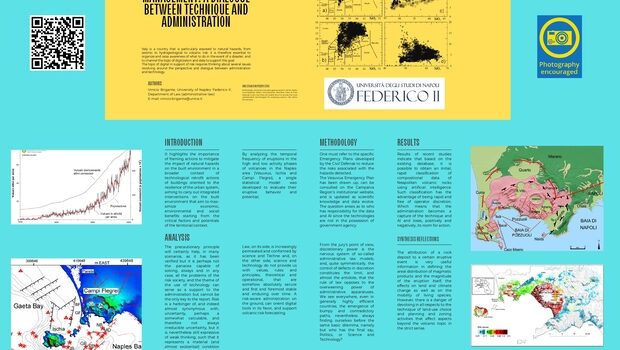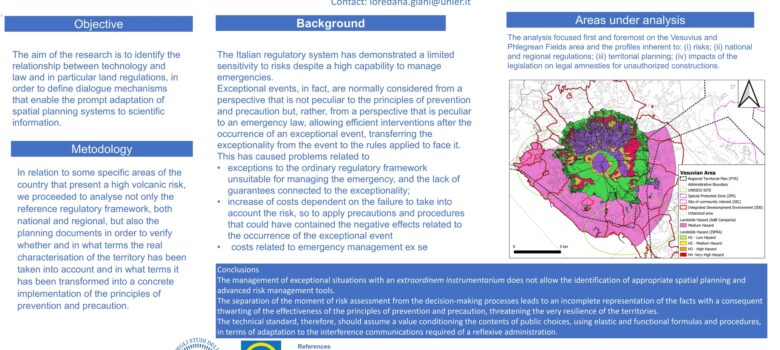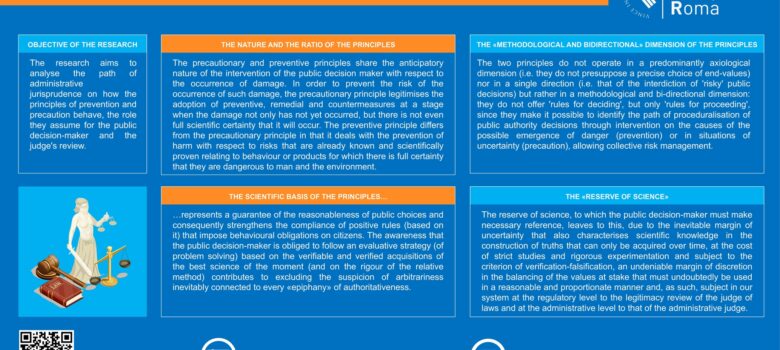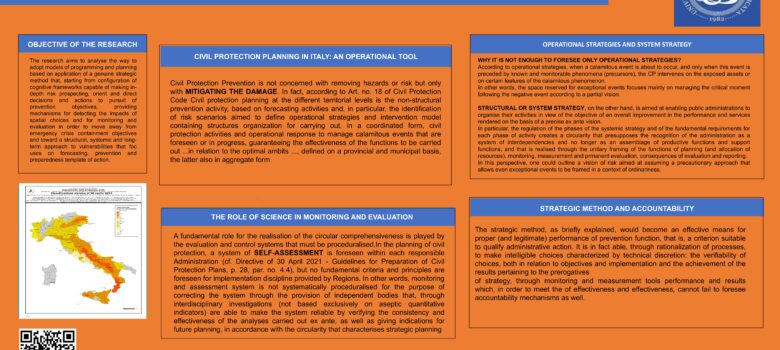Categoria: EGU2023
Poster pubblicati durante l’evento EGU General Assembly 2023
V. Brigante, Artificial Intelligence and Volcanic Data Management: A Dialogue between Technique and Administration, in EGU 2023

For years now, proliferation of technological tools has been taking hold, albeit with some resistance, in the public sector as well, since as reflected in the agendas and public policies of EU member States, digitalization is a non-deferrable need, a prerequisite for the implementation of further reforms. This report’s purpose is to ascertain whether and how, data in IA can support administrations and stakeholders in coping with unforeseen events, such as earthquakes and volcanic eruptions.
L. Giani Maguire; B. Murgante; V. Santarsiero; A. Cutolo, Trilemma, Complexity, Administration, and Exceptional Events, in EGU 2023

The aim of the paper is to identify a key to understanding that allows us to overcome the regulatory trilemma that has emerged, seeking to offer a perspective according to which the exceptional event, an expression of the (ineliminable) complexity of reality, is included (in the competent political and institutional fora) in a broader case, encompassing contingencies.
A. Iacopino, Precaution and Prevention in the Jurisprudence of Administrative Judge, in EGU 2023

The paper aims to analyse the path of administrative jurisprudence on how the principles of prevention and precaution behave, the role they assume for the public decision-maker and the judge’s review. In this perspective, priority is given to examining the nature and ratio of the two principles, as well as the relationship between them.
G. Iacovone, Programming as Part of Risk and Emergency Governance, in EGU 2023

Administration appropriateness within the government of risk and emergency, and hence in its full application of precautionary model requires a preliminary thought about the precaution and prevention criteria that play a fundamental role according to a complementary relational dynamic that presupposes a coordination between parties, including private ones, especially in order to gain an adequate acquisition of essential scientific and technical knowledge that is an indefectible prerequisite for the preparation of measures and procedures adequate with respect to the purpose.

